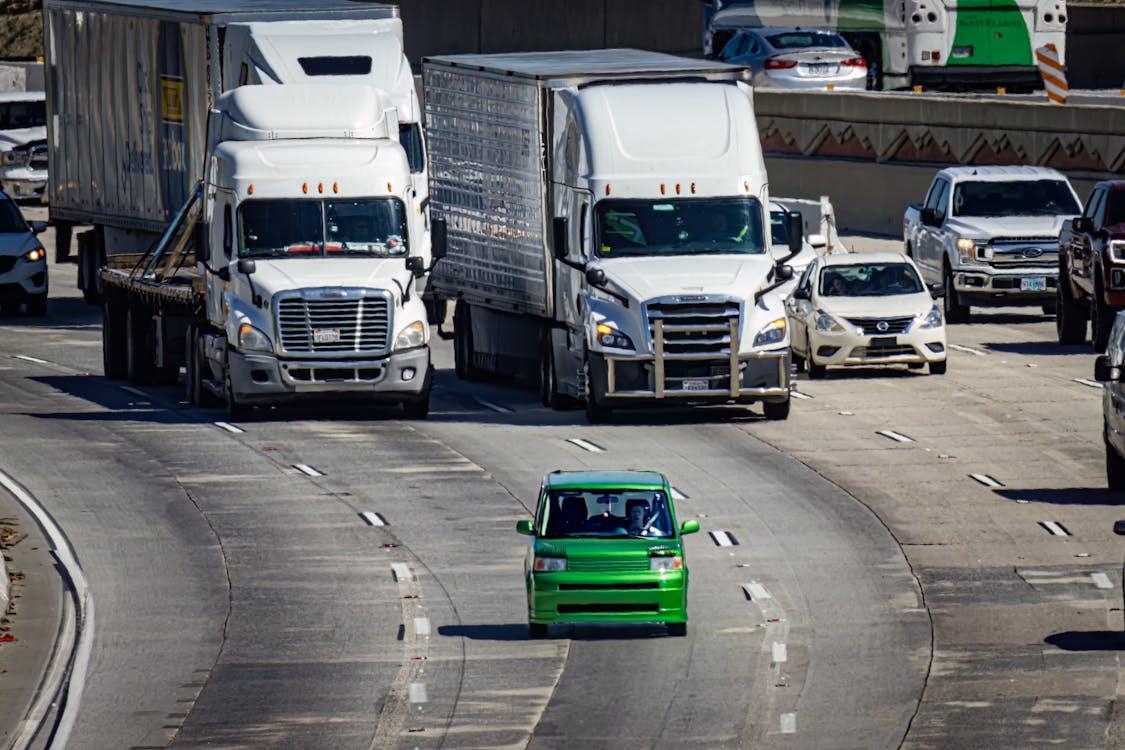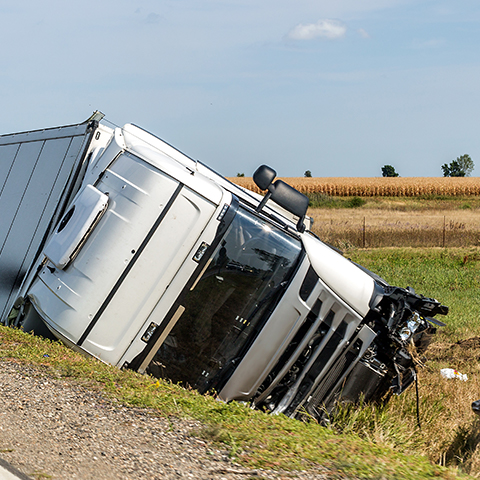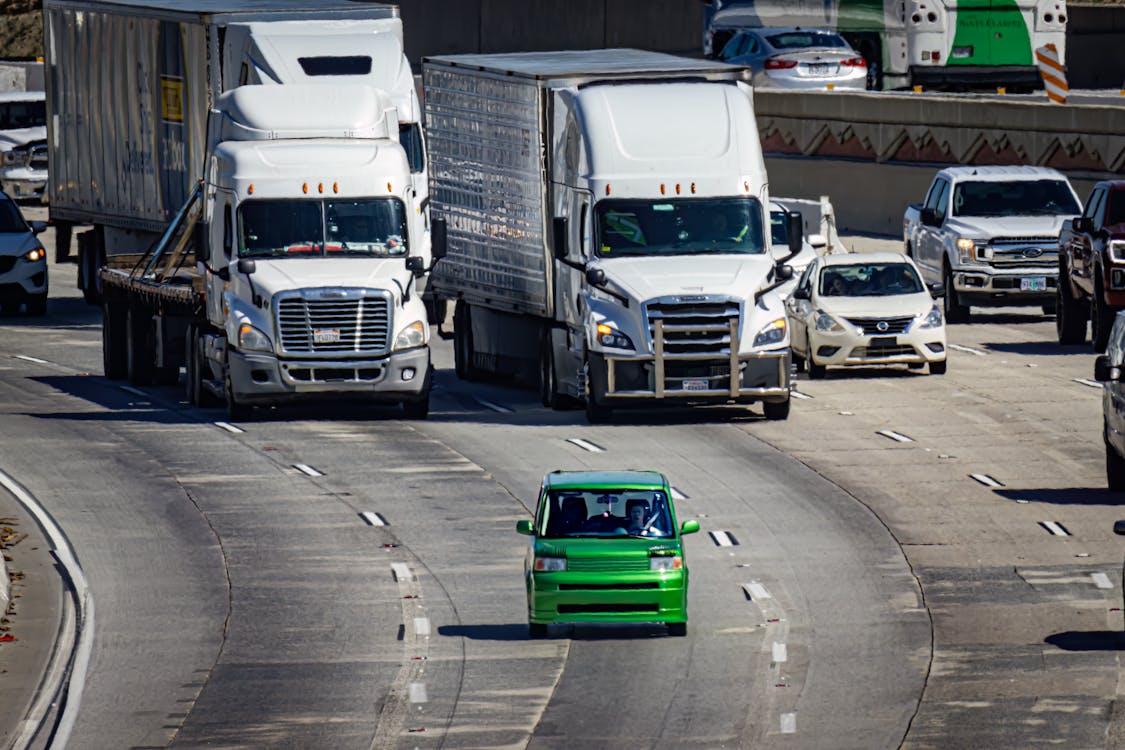

Truck accidents are, unfortunately, all too common on our roads and highways. These incidents often result in severe injuries, significant property damage, and even loss of life. When such a tragedy occurs, the victims and their families are left grappling with emotional turmoil, physical pain, and financial strain. In these challenging times, the importance of hiring a specialized truck accident lawyer cannot be overstated.
Truck accident cases are markedly different from standard car accident cases due to the sheer complexity involved. Trucks are governed by a unique set of federal and state regulations that dictate everything from maintenance schedules to driver hours. A specialized truck accident lawyer is well-versed in these intricate laws and knows how to navigate them effectively. This deep understanding enables them to identify violations that may have contributed to the accident-violations that might be overlooked by a generalist attorney.
Hiring a specialized truck accident lawyer brings numerous advantages: they possess essential knowledge about specific regulations governing trucks; they have experience countering well-resourced trucking companies; they know how vital pieces of evidence should be collected; they excel at negotiating fair settlements; most importantly-they offer invaluable support during one's most vulnerable moments following a harrowing event like a truck accident.
A truck accident lawyer plays a crucial role in advocating for victims involved in collisions with large commercial vehicles. Their primary responsibility is to protect the rights of their clients and ensure they receive fair compensation for their injuries, losses, and damages. This specialization requires an intricate understanding of both state and federal trucking regulations, as well as a keen ability to navigate the complexities of personal injury law.
One of the initial tasks undertaken by a truck accident lawyer is conducting a thorough investigation into the circumstances surrounding the accident. This involves collecting vital evidence such as police reports, witness statements, photographs from the crash scene, and data from the truck's onboard electronic logging devices (ELDs). The lawyer may also work with accident reconstruction experts to piece together how the incident occurred and identify any contributing factors such as driver fatigue or mechanical failures.
Sacramento is the capital city of the U.S. state of California and the seat of Sacramento County. Located at the confluence of the Sacramento and American Rivers in Northern California's Sacramento Valley, Sacramento's 2020 population of 524,943 makes it the fourth-most populous city in Northern California, sixth-most populous city in the state, and the ninth-most populous state capital in the United States. Sacramento is the seat of the California Legislature and the Governor of California.
Sacramento is also the cultural and economic core of the Greater Sacramento area, which at the 2020 census had a population of 2,680,831, the fourth-largest metropolitan area in California.
Before the arrival of the Spanish, the area was inhabited by the Nisenan, Maidu, and other indigenous peoples of California. In 1808, Spanish cavalryman Gabriel Moraga surveyed and named the Río del Santísimo Sacramento (Sacramento River), after the Blessed Sacrament. In 1839, Juan Bautista Alvarado, Mexican governor of Alta California, granted the responsibility of colonizing the Sacramento Valley to Swiss-born Mexican citizen John Augustus Sutter, who subsequently established Sutter's Fort and the settlement at the Rancho Nueva Helvetia. Following the American Conquest of California and the 1848 Treaty of Guadalupe-Hidalgo, the waterfront developed by Sutter began to be developed and incorporated in 1850 as the City of Sacramento. In 1852, the city offered its county courthouse to the state of California to house the state legislature, resulting in the city becoming the permanent state capital in 1854 and ushering in the construction of a new state capitol building which was finished in 1874.
Sacramento is the fastest-growing major city in California, owing to its status as a notable political center on the West Coast and as a major educational hub, home of California State University, Sacramento and UC Davis. Similarly, Sacramento is a major center for the California healthcare industry, as the seat of Sutter Health, UC Davis Medical Center, and the UC Davis School of Medicine. In 2013, the Sacramento Convention and Visitors Bureau stated that the city receives 15.3 million visitors per year, and is home to the California Museum, Crocker Art Museum, California State Railroad Museum, California State Capitol Museum, the Sacramento Convention Center, and Old Sacramento State Historic Park. It was a global city, designated at the Gamma − level in 2020.

When you're involved in a truck accident, the aftermath can be overwhelming.. Beyond dealing with potential injuries and damages, you must navigate the complex web of legal responsibilities and rights.
Posted by on 2024-09-25

Managing Medical Bills and Financial Losses Post-Accident Experiencing a truck accident is an overwhelming ordeal that can turn your life upside down in the blink of an eye.. Beyond the physical pain and emotional trauma, there lies another daunting challenge: managing the avalanche of medical bills and financial losses that follow.
Posted by on 2024-09-25

When it comes to truck accidents, the aftermath can be catastrophic, often leading to severe injuries or even fatalities.. For victims seeking justice and compensation, proving negligence is an essential step.
Posted by on 2024-09-25

Choosing the right truck accident lawyer can make a significant difference in the outcome of your case.. Truck accidents are often more complex than regular car accidents due to the involvement of commercial entities, intricate regulations, and potentially severe injuries.
Posted by on 2024-09-25
When considering the cost of hiring a truck accident lawyer, it's important to note that many attorneys offer an initial consultation free of charge. This first meeting allows you to discuss the specifics of your case and provides an opportunity for the lawyer to evaluate its merits. During this consultation, you'll also gain insight into their fee structure and what you can expect moving forward.
One of the most common payment arrangements for truck accident lawyers is the contingency fee model. Under this system, clients are not required to pay any upfront fees. Instead, the attorney receives a percentage of any settlement or court award obtained on your behalf. Typically, this percentage ranges from 25% to 40%, depending on the complexity of the case and other factors. This arrangement aligns the lawyer's financial interests with your own, as they only get paid if you win.


A key difference between car and truck accident lawyers lies in their specialized knowledge and expertise. Truck accident lawyers typically have a deep understanding of the unique regulations governing commercial trucks, such as Federal Motor Carrier Safety Administration (FMCSA) rules. These laws are complex and differ significantly from those that apply to regular passenger vehicles. Car accident lawyers, on the other hand, focus more on general traffic laws and insurance claims related to personal vehicles.
The types of evidence required in truck accidents also set them apart. Truck accident cases often involve intricate details like driver logs, weight station records, maintenance logs, and black box data from the truck's onboard systems. Gathering this evidence requires specific know-how that is not usually necessary in car accident cases. Car accident lawyers deal primarily with police reports, witness statements, and standard insurance documentation.
To prove fault in a truck accident case, the first step is to gather comprehensive evidence. This involves collecting police reports, witness statements, and any available video footage from traffic cameras or dashcams. Photographs of the scene, including skid marks and vehicle damage, are also crucial. Accurate documentation helps establish a clear timeline and context for the accident.
Truck drivers are required to maintain logbooks that track their driving hours, breaks, and overall compliance with federal regulations. These records can provide insight into whether driver fatigue or violations of service hours contributed to the accident. Additionally, examining maintenance records can reveal if mechanical failures were due to negligence.


The moments following a truck accident can be chaotic, yet they are crucial for laying the groundwork for any future legal proceedings. Immediately after ensuring everyone's safety, it's important to gather as much evidence from the scene as possible. This includes taking photographs of the vehicles involved, road conditions, and any visible injuries. Collect contact information from witnesses and exchange details with other parties involved in the accident. Documentation such as police reports and medical records will also serve as critical pieces of evidence later on.
Even if injuries appear minor at first glance, seeking prompt medical attention is essential. Hidden injuries like internal bleeding or traumatic brain injuries might not manifest symptoms immediately but can have long-term repercussions. A thorough medical evaluation provides not only necessary treatment but also detailed documentation that might be pivotal in proving your case later on. Always keep copies of all medical bills, prescriptions, and related documents as these will support your claims for damages.
Navigating the intricacies of truck accident law often requires specialized knowledge that goes beyond general personal injury cases. Consulting a truck accident lawyer early in the process can significantly impact the outcome of your case. These experts understand federal and state regulations governing commercial trucking, such as hours-of-service rules and vehicle maintenance standards. They can help you identify liable parties—be it the truck driver, trucking company, or even manufacturers—and build a strong case accordingly.

After a truck accident, ensure everyones safety and call emergency services. Document the scene with photos, gather contact information from witnesses, seek medical attention even if injuries seem minor, and consult a truck accident lawyer before speaking to insurance companies.
A truck accident lawyer can investigate the incident, gather evidence, identify liable parties, negotiate with insurance companies on your behalf, and represent you in court if necessary to secure fair compensation for your injuries and damages.
You may be entitled to compensation for medical expenses, lost wages (both current and future), property damage, pain and suffering, emotional distress, and in some cases punitive damages if gross negligence is proven.